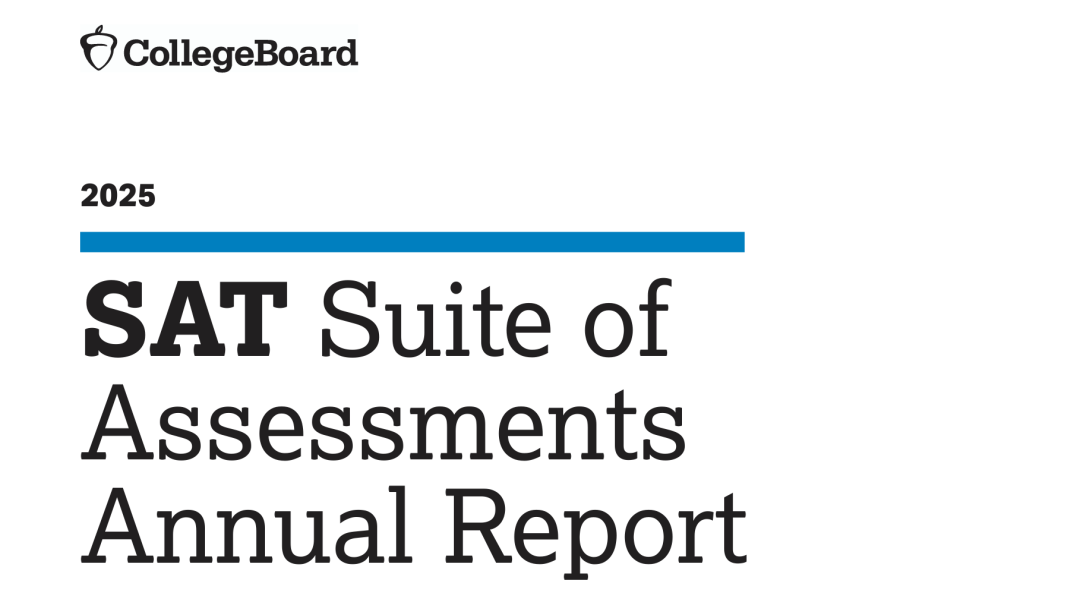酷爱教学的美国文学教授、作家Eric,在教中国孩子的过程中,培养了一批英文学霸,同时总结了宝贵的教学经验,
“
美国文学教授
作家Eric
下文是ERIC为中国学生剖析,如何更好利用《Great Writing 》写作教材,教授议论文的写作方法。
(英文翻译由wintutor英文翻译组 Wendy博士完成)
HOW TO WRITE AN ARGUMENTATION ESSAY
By Eric LeRoy
1. Choose a subject which is meaningful (and maybe even controversial) and on which there is no consensus of opinion i.e., an essay entitled "All Children Need an Education" would not be suitable because nobody in their right mind would disagree with that. BUT a title such as "Is online education more effective than face-to-face education?" would be provocative because there are many differences ofopinions.
1.选择一个有意义的(甚至可能有争议的)主题,一个人们还没有达成共识的话题。比如论证“所有儿童都需要教育”的文章是没有多大意思的,因为没有一个头脑正常的人会不同意这一点。但是诸如“在线教育比面对面教育更有效吗?”之类的话题会很有挑战性,因为存在很多意见分歧。
2. In order to argue effectively, you must takea clear position. BUT -- it is essential that you understand BOTH sides of the question. Advocating your view without reference to an opposing body of opinion is a sure indication of Ignorance and unwillingness to be Fair. So, you have to do your homework and be prepared to REFUTE the points made by the opposition. Not IGNORE them.
2.为了进行有效的论证,你必须有明确的立场。但是,理解争论的两个对立面是很重要的。在没有考虑反对意见的情况下一味主张自己的观点无疑是无知和不愿意体现公平的表现。因此,您必须做好功课并准备好反驳对方提出的观点。而不是忽视他们。
3. Your essay should be 5 paragraphs, and this will consist of an Introduction, Three Body Paragraphs, and a Conclusion. My advice is to write a rudimentary (first draft) introduction but move on quickly to the points you wish to make. THEN, after you have seen where the process of actually writing the essay is taking you (often to a different place than you had imagined at first) GO BACK and tailor the revision of your Introduction accordingly.
3.你的文章应该有 5 个段落,其中包括一个引言,三个正文段落和一个结论。 我的建议是写一个基本的(初稿)引言,但快速转到你想要表达的观点。然后,在您实际写的的过程中你会更明白自己想要表达什么(通常会与您最初想的不一样)后,你可以返回并相应地修改你的引言段落。
4. People under-estimate the importance of the Introduction and Conclusion of the essay. Please DON’T. Rather they are the Most Important because, as we all know, a First Impression and Last Impression are crucial. The first impression gets you in the door and off to a head start; the Conclusion gives the audience something to remember -- something favorable to you and your argument.
4.人们低估了论文引言和结论的重要性。请不要。相反,它们是最重要的,因为众所周知,第一印象和最后印象至关重要。第一印象让您一进门就抢占先机;结论给观众留下了一些值得记住的东西——一些对你和你的论点有利的东西。
5. Use a hook to start the Introduction. This can be a rhetoricalquestion, an amazing fact or statistic, or an anecdote that applies to the theme of your paper (and which can be revisited in the Conclusion for purposes of symmetry and development).
5. 用吸引眼球的方式开始引言。这可以是一个反问句,一个惊人的事实或统计数据,或者一个适用于你的论文主题的轶事(并且可以在结论部分重申这件事以达到对称和不断展开的目的)。
6. State the three-part thesis at the end of the Introduction.
6. 在引言末尾陈述你的三个主要论点。
7. The first body paragraph (NOT the Last) should be used to state, fairly and accurately, the arguments that oppose your own arguments. Get that out of the way FIRST; don't wait until the end (like many writers do) and undermine the great argument you have made by highlighting the objections at the Climax part of your paper (Howcounterproductive). Do it FIRST and deal with it. Then move on.
7. 第一个正文段落(不是最后一个)应该用来公平、准确地陈述与你自己的论点相反的论点。 首先把它解决掉;不要等到最后(像许多作家那样)在论文高潮部分来强调反对意见,这会破坏你之前的工作(多么适得其反) 。所以我们首先讲反对方的观点并解决它。然后继续前进。
8. After you have settled on a strong preferablythree-part thesis, the Body Paragraphsshould be relatively easy to write AS LONG AS you orchestrate your paragraphs in the order presented in the thesis and STAY ON THE POINT of your topic sentence. Every sentence should be on-topic.
8. 在你在引言确定了三个强有力的论点之后,只要你按照引言中提出的顺序编排你的段落并围绕每段的主题句展开,正文段落应该相对容易写。每句话都应该切中主题。
9. Use examples as much as possible. These are Ideas in Illustrated form. Many readers who might be confused by your comparatively abstract assertion will catch on immediately if they are offered a good example. And if you believe in what you are saying, SURELY you can provide examples. Statistics and quotes can also be useful.
9. 尽可能多地举例。例子就像文章里的插图。许多可能对你相对抽象的文字感到困惑的读者,通过你提供的好的例子,会立即明白你要表达的观点。如果你相信你所说的是对的,你当然可以提供例子。统计数据和报价也很有用。
10. A body paragraph is a sandwich: first piece of bread is the topic sentence; next you put all the food in that you want; finally, you use another piece of bread (the last sentence of the paragraph) to seal it all together.
10.正文段落就像三明治:第一块面包是主题句;接下来你把你想要的所有食物放进去;最后,你用另一片面包(该段的最后一句话)将它们密封在一起。
11. An important piece of advice: Rember that the introduction and conclusion need to be the most creative parts of your paper. Therefore, be assured that they work hand-in-hand. Many students ruin their paper by writing terrible introductions and conclusions-often too mechanical, cliché-ridden and generally uninspired. The conclusion should (in original language) remind the readers that the promises of the thesis statement were kept. All points were addressed. Then the writer should try to reconnect with the introduction in terms of the hook: was it a rhetorical question? A narrative? A strong suggestion/call to action?
11. 一条重要建议:请记住,引言和结论必须是论文中最具创意的部分。因此,这两部分要携手合作,遥相呼应。许多学生因为写出糟糕的引言和结论而毁掉了他们的论文——通常过于机械、陈词滥调且缺乏灵感。结论应该用自己的语言提醒读者引言里的观点得到了论证,所有要点均已得到解决。然后作者应该尝试回应引言部分引起话题那个点,无论这个点是一个反问句,还是一个事实,抑或是一个建议/号召。
12. Be mindful of transition words and phrases and use them to bridge the paragraphs. There are only so many, so memorize them. Don't repeat yourself unnecessarily; there are many options.
12. 注意过渡词和短语,并用它们来连接段落。总共只有这么多的过渡词和短语,所以最好记住它们。不要重复过渡词;要换着花样说。
13. Take a holistic (not linear) approach to your essay. It is 'all of a piece'. Every sentence should have a relationship with the others.
13. 对你的论文要有整体观(而非线性)。文章应该是“一体的”。每个句子都应该与其他句子有联系。
14. Think about what VOICE you are using. Formal? Informal? Serious or humorous and whimsical? Angry? Conciliatory? It is CRUCIAL that you choose the right TONE and stick with it. Don't sound like a judge giving out a death sentence in one paragraph, and Bozo the Clown in the next.
14. 考虑一下你使用的语气。正式的?非正式的?严肃的?幽默的,或者异想天开的?生气的?和解的?选择正确的语气并坚持下去至关重要。别一段听起来像是一位法官在宣判死刑,而下一段则像是小丑博佐。
15. Never be satisfied with a First Draft. WRITING ISREWRITING. It is a great shame that most students don't have time -- or take time-- to edit, revise and proofread THOROUGHLY.
15.永远不要对初稿感到满意。写作就是重写。遗憾的是,大多数学生没有时间——或者说花时间——彻底编辑、修改和校对。
16. IMAGINE AN AUDIENCE. Never write out of a vacuum or just because it is an assignment. Write it FOR somebody. Mom and Dad, yourfriend, dog or cat, the nation or the universe. If you are writing because you CARE about what you are saying and can think of somebody else who might care -- your writing will 'magically' get better.It will be more intense, more alive, and more authentic.
16.写的时候心里要有个假想的读者或者观众。永远不要凭空写作或仅仅因为这是一项作业。你要为某个人或物写作。妈妈和爸爸,你的朋友,狗或猫,国家或宇宙。如果你写作是因为你关心你所说的内容,并且能想到其他可能关心你的内容的人,那么你的写作就会“神奇地”变得更好。它将更加强烈、更加生动、更加真实。














